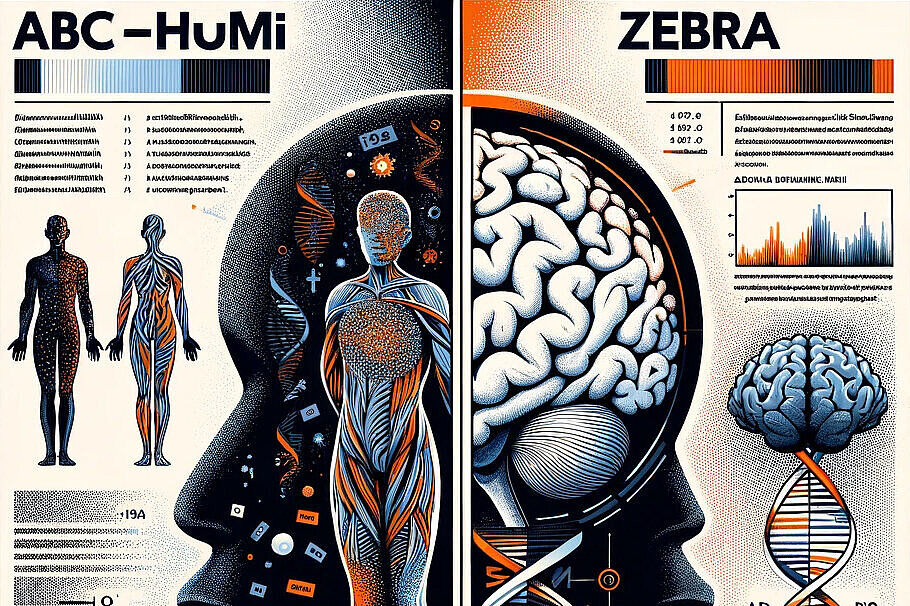There is a lot of AI in our everyday lives today, for example in search engines, in voice assistants and in various apps on our smartphones. How much AI is there in your research now?
Andreas Keller: (laughs) A lot! AI plays a very central role in our research. Machine learning, which is a sub-area of AI, has been used in infection research for several decades. So the use of AI is not really new here. Neural networks, which in principle function in a similar way to a human brain, are another frequently used form of AI. AI models are valuable tools that enable us to analyze huge amounts of data and extract knowledge and correlations from them. This is also known as data science and is a very important part of our research today. Choosing the right AI model is just as important as the quality of the data.
Yang Li: I completely agree with that! You can't get good analytical results from a poor data basis, even with the help of AI. High-quality, detailed and comprehensive data resources are essential if we are to use AI models efficiently for our research and achieve meaningful results. With modern high-throughput methods, valuable data sets can now be generated faster and more cost-effectively, which we use for our research projects. We also work closely with the Hannover Medical School and therefore have access to large patient cohorts. In my working group, we regularly use AI tools for our data analyses.
How can AI specifically help in individualized infection medicine?
Andreas Keller: What is already being done in some clinics today is to determine the gene sequence of the pathogen in patients with bacterial infections and a severe course of the disease and, with the help of AI tools, derive possible points of attack and receive suggestions for suitable antibiotics. Of course, such rapid diagnostics are not used for every common cold. The process is still too complex and too expensive for that.
Yang Li: But we will certainly continue in this direction in the future. It is conceivable that there will be medical AI assistants in everyday clinical practice that can support doctors on a much broader level in making diagnoses and planning treatment. The emphasis here is on "support", as AI cannot completely replace doctors. One thing is certain: AI will make many things possible in individualized infection medicine in the future that will benefit patients.









